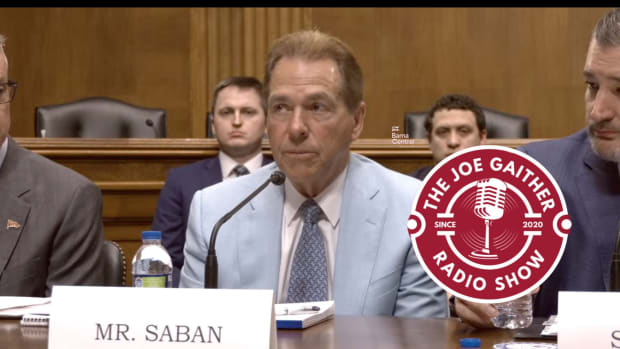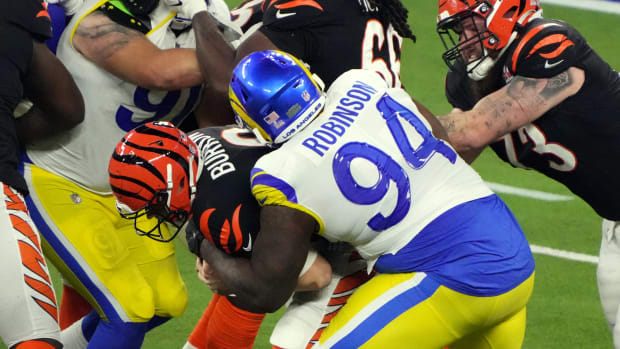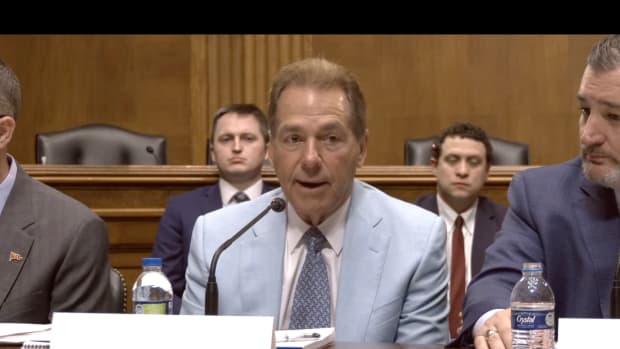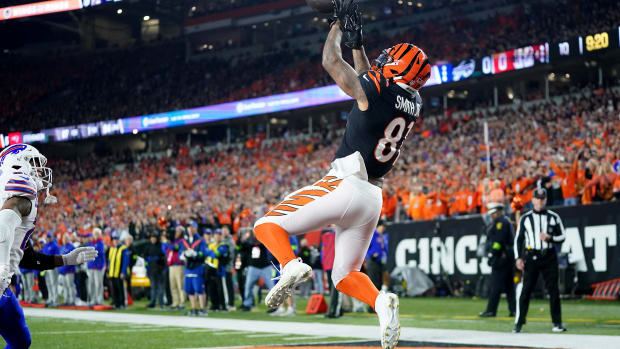Oh, the stories Eli Gold can tell, about Alabama and more ...
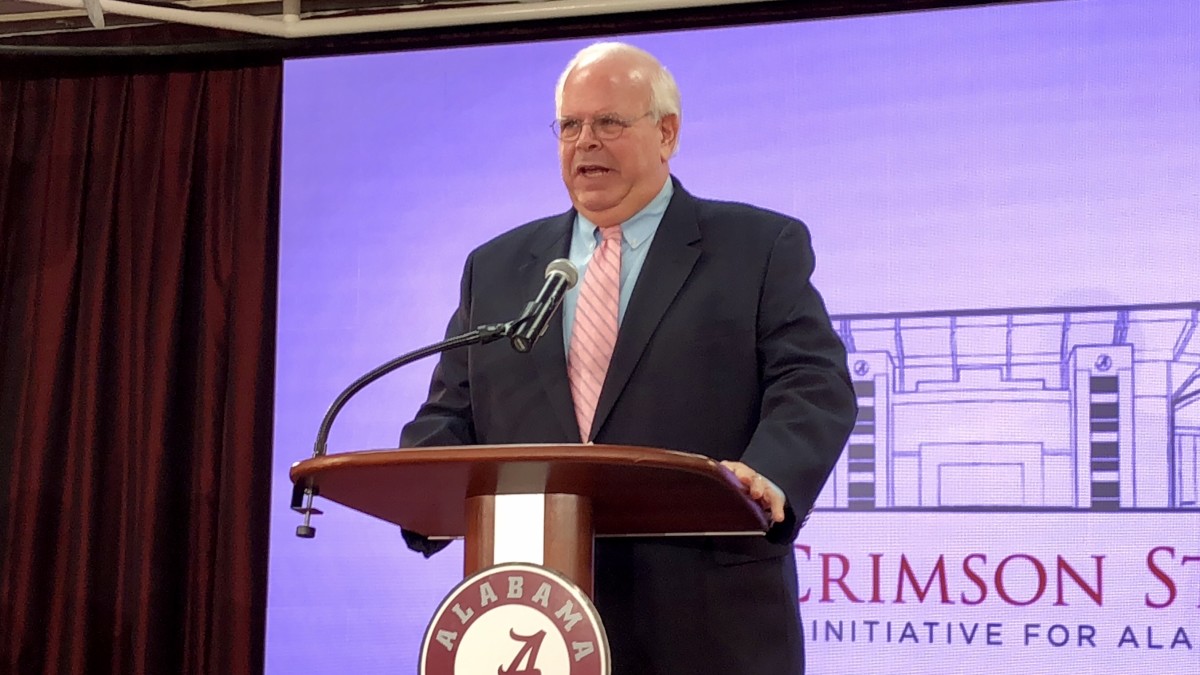
Way back when Eli Gold was in high school, and dreamed of someday becoming a broadcaster, he wrote letters to those he looked up to in the industry and asked for advice.
They weren’t just local personalities, or those who had New York connections, but nationally as well. What’s the best way to get started? What schools are the best at developing career aspirations? How do I become you?
One of them was Chris Schenkel.
If you’re a sports fan and don’t know who Schenkel was, you unfortunately missed out. He not only called every sport imaginable, but always did so well. One of his staples was the ABC broadcasts of the Professional Bowlers Association Tour, which he did for 36 years. Yet he also did college football, NBA, Indianapolis 500, Olympics and The Masters.
As the voice of the New York Giants, Schenkel was in the booth for the 1958 NFL Championship against the Baltimore Colts, maybe the most important game in league history.
Moreover, Schenkel had a first-rate reputation. He was the kind of person who was regularly described being as a “consummate gentlemen.”
So Gold wrote to him, not necessarily knowing that he was as likeable off the air as on.
“I was enamored,” Gold said. “Number one, I loved watching him on TV. In those days he did the Pro Bowlers Tour on ABC, and he did college sports, he was one of the contributors on Wide World of Sports. But I always found it cool that he was from a little town called Bippis, Indiana, and I just found that to be a funny little name.
“So I said, “‘Eh, he must be a nice guy. He’s from Bippis, Indiana.’”
Schenkel responded with an encouraging note.
What Gold would give to still have the letter, but he’ll be telling the story on December 10 when receiving the 2019 Chris Schenkel Award at the National Football Foundation’s 62nd Annual Awards Dinner. Fittingly, it will be held in New York.
Presented annually since 1996, the award recognizes individuals who have had long, distinguished careers broadcasting college football with direct ties to a specific university.
This is Gold’s 31st season with Alabama.
"Eli Gold has been the iconic 'Voice of the Crimson Tide' for more than 30 years, broadcasting some of the most memorable games for one of the most successful football programs in college football history,” NFF President and CEO Steve Hatchell said when announcing this year’s winner. "His calls of 'Touchdown Alabama!' are a familiar and beloved sound to the Crimson Tide faithful each fall.”
Gold started calling Alabama football games in 1989. He also serves as the play-by-play commentator for Alabama basketball and hosts "Hey Coach & The Nick Saban Show" on the Crimson Tide Sports Network during football season.
“It’s … it probably means I’m getting old,” Gold said with a laugh. “No, it’s a remarkable honor. Any time you get any kind of a career or a lifetime achievement award it’s so flattering and just so unbelievable. You know, I never could have imagined anything like this as a kid growing up in New York City.
“It’s very, very special. I will be up there accepting the award, but I guarantee I’m accepting it on behalf of many, many, many, many, many, many, many other people who have helped me along the way.”
Like Schenkel, whom Gold did get a chance to meet and talk with a few times when their paths crossed in New York, his career hasn’t been limited to just one sport.
For 41 years, Gold called NASCAR races, to go with 12 years as a professional hockey announcer, including stints with the NHL's St. Louis Blues and Nashville Predators.
He was the first play-by-play announcer for the UAB Blazers basketball team and spent four years as the voice of the Birmingham Barons baseball team (Double-A, Chicago White Sox). Getting back to football, he’s called Arena Football League games for numerous networks.
But Gold is best known for Crimson Tide football and his trademark call "Touchdown Alabama!" During his time behind the microphone for the program its won six national championships and nine SEC titles.
“I’ve been blessed. You’re a better broadcaster if you have a good story to tell,” he said. “There were some seasons that weren’t all that spectacular, but I’ve been with the university through what has been arguably the greatest sports era in this school’s history. So when you have good stories to tell you’re automatically a better broadcaster.
“I was with NASCAR during its height. I’ve been championship-winning baseball and hockey teams. So I’ve had great stories to tell.”
Actually, there’s more to that story, which is one of his favorites to tell.
Gold first learned that lesson just after moving to Alabama in 1972. He was a working as a weekend sports reporter with the Mutual Broadcasting System and barely knew anyone in his new home, but through some friendships had received numerous recommendations about where to go and what to eat.
One of those suggestions came through Alex Grammas, who at the time was the third-base coach of the Detroit Tigers. His nephew, George, ran Michael’s Steaks and Seafood in Birmingham (where Paul W. “Bear” Bryant would take the whole Crimson tide team after the Iron Bowl).
When Gold showed up for the first time the manager immediately introduced him to someone who just happened to be in the restaurant as well.
“Son, what brings you to Birmingham?” the patron asked Gold, who responded that he was the new announcer for the Birmingham Bulls hockey team in the World Hockey Association.
“Well, I don’t really know much about professional hockey, but I’ll tell you this: If your team wins you’re going to be a better broadcaster than if they lose.”
Gold then delivers the punch line after savoring it like one of those steaks: “It was Shug Jordan. I had no idea who he was at the time.
“Good Lord, I’ve had some great stories to tell.”


